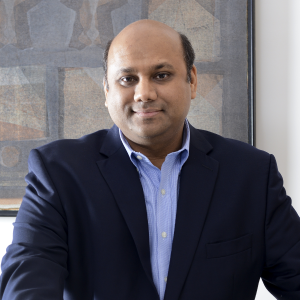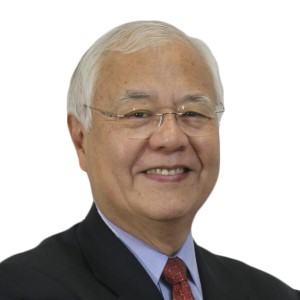
Analyzing How The Coronavirus Crisis Has Affected Family Businesses

Family businesses adapted to the necessary changes caused by the pandemic and thrived in many instances. But, as they look to the future, what considerations weigh heavily on the minds of these business leaders? How do they adapt their strategies and mindsets to cope with volatility in the digital age?
Of the four pillars of the Art of Smart, family businesses continue to lag on diversity, according to experts. These businesses, often beacons within their local communities, employ workforces that are heavily homogenized, which hampers their ability to internationalize, according to researchers at Imperial College Business School in the UK. To triumph in 2021 and beyond, a progressive, open mindset is essential.
The researchers also suggest family businesses in Asia are less likely to venture beyond their borders and internationalize when cash flow is available, unlike corporate firms and non-Asian family firms. An emphasis on regionality has been a strategy that favored them well in the past as they look to maintain strong community ties and remain committed to socioemotional wealth. However, in a heavily digitized world, their competitors are everywhere.
Playing the long game
 |
Despite the unilateral cratering of the global economy in 2020, the entrepreneurial leaders The Art of Smart spoke to are not deeply concerned about long-term survival. Unconstrained by shareholder demands, they often adopt decision-making strategies in which positive legacy planning, generational continuity, and long-term financial well-being are far greater priorities. Sunil K. Dalal, Chairman of UNIDEL, a technology solutions provider and incubator headquartered in India, has seen many waves of disruption over the past 30 years and responded by reimagining and diversifying his family's business. He joined an industrial automation business founded by his father at the beginning of India's economic liberalization in 1991, leading to foreign competitors taking away customers. |
|
"My approach was to tackle that disruption head-on," he says. "Around 1996, we sold or shut down everything that was dwindling and freed up working capital and people to focus on rebuilding." By salvaging the technology transfer agreements with UK-based partners, the new business found its shape with a series of joint ventures and equity partnerships. A blend of in-demand technology and market know-how helped the company flourish until a wave of consolidation in the mid-2000s by industry behemoths swallowed up their mid-cap customers. "We sold to our foreign partners and again freed up capital," continues Mr Dalal. "That allowed us to invest in new businesses in which we owned IP and the brand to operate on a global scale." A masterclass of business jujitsu, with foresight and capital in hand, UNIDEL made disruptive plays within Industry 4.0, cloud computing, FinTech, and EdTech. Dalal now oversees a smart buildings IoT solutions business, an industry-leading family office FinTech solutions provider, and an EdTech startup. "Now we're the ones disrupting established sectors," he grins. |
|
Entering dangerous waters
|
It is estimated that over the next 25 years, US$ 68 trillion will move from one generation to the next; ownership of private and family-owned business form 70 percent of these assets. Family businesses are highly concentrated in Asia and form 85 percent of companies in the region. Further, they contribute over one-third (34 percent) to Asia's GDP and employ 57 percent of the working population. Given this, it is imperative for the region, and global economies, that family businesses thrive now that they have entered the digital age. |
 |
|
"Only about 13 percent of family businesses are passed down successfully to a third generation, while 3 percent survive to a fourth or beyond," explains Martin Roll, a Singapore-based strategic family business adviser and author of Family Business Strategy and Family Office Strategy. He points to an INSEAD study of Hénokiens: family-run firms that have survived over two hundred years. How did these firms survive? First, they clearly made smart decisions to navigate disruption caused by war, pandemics, and changing technology suggests Roll. "They learnt from failures, handled succession, and kept up with the times, which made the business more resilient." Second, good governance and generational handovers emboldened already robust structures. Finally, these successful family businesses looked outside to move forward. "They realized that they might not have the right person for the job in the family," says Roll, "so they learnt to trust an outsider to run the business." The lesson for business leaders here is clear: diversity and collaboration with “outsiders” is business-critical and will boost an organization’s chances of longevity. If the events of 2020 have taught people anything it is that navigating change is much easier with help, whether internal or external. |
|
Calling on the professionals
 |
Bimal Mehta, Managing Director at Vakils Premedia, is the company’s third-generation Indian owner-operator. He transformed his family's traditional publishing business into an IT-enabled services company with a global clientele. "When I joined, to help my father with the business, in 2004, I saw traditional publishing as a sunset industry," he explains. One of their largest clients in the US was disrupted by smaller, nimbler IT-enabled services providers. “It was only a matter of time before the same happened to us,” he says. “However, IT-enabled services were far removed from our area of expertise.” |
|
Making the change meant trusting new blood to come and take the reins. In 2007, they set up a new subsidiary for the business, which showed no signs of profitability until 2009. However, with the trust of his father and the parent company footing the bill, he was able to make headway. Today, the IT services wing is far more profitable than traditional publishing. Now, Vakils finds itself in the throes of disruption again. This time it is the ubiquity of technology, with competition startups both local and global and large global IT conglomerates. With costs no longer a competitive advantage, Mehta has had to rethink his strategy. His company’s future profitability rests on becoming more professional, while staying true to the ethos. “Over time, we expanded our workforce overseas and worked with partners to create governance structures that emphasize transparency.” He’s established an independent board of advisors. Mehta believes everyone, including the CEO, needs to be accountable to someone. |
|
|
”Governance is an area where family businesses often lag behind their corporate competitors,” notes Jessica Cutrera, Founding Partner of The Capital Company, an independent asset management firm in Hong Kong. "If your board and advisors are predominantly members of the family, then you do not get as much critical input as you need." Frequently, as family businesses in Asia try to modernize, expand, and set up family offices, they try to go at it alone. Cutrera cautions against such an approach. "We've met family owners who've tried to set up their own family offices and they put family members in charge who were not the right fit.”
|
 |
|
"My approach was to tackle that disruption head-on," he says. "Around 1996, we sold or shut down everything that was dwindling and freed up working capital and people to focus on rebuilding." If it doesn’t work out, this can end up taking up a lot of time and capital. “My tip to families is to make sure they get the right professional advice and be prepared to pay for quality advice." |
|
Heir not apparent
 |
Kiran Kandade, a lecturer at Brunel University, London, has observed that family firms that have external voices, such as non-family stockholders and an independent board of directors, are more likely to choose business leaders based on competency. "Family businesses in India view succession through a rigid lens," says Kandade. Her research focuses on successful family business succession. "Birth order, gender, and blood, – i.e., first-born son. Other factors they consider are the son’s relationship to the previous generation – not great ways to plan succession. In the past, if there were no sons in line, they prioritized sons-in-laws over daughters.” |
|
Today, this attitude is changing, though heavily dependent on the industries, she posits. Industries like technology, finance, and services see more women in leadership roles, while progress is slower in industries like manufacturing, machinery, and steel. Kandade’s research suggests that, frequently, a successful handover comes down to interpersonal dynamics. Can the family principal fully step away from day-to-day operations? Do employees see the family put trust in the new leader? Did the leader work their way up within the organization? And have they been able to create a bond with long-time employees? Family businesses looking to bring in new leadership, whether internal or external, will do well to pay attention to these questions. |
|
Next generation not interested in succession
|
A study by Peking University suggested that nearly 80 percent of the next generation are disinterested in taking over the family business. The research highlighted that they’d rather follow their own passions, whether entrepreneurial, professional or creative. Yet, these business owners continue to show aversion to external partners and professional managers. In an increasingly decentralized world, this can have adverse effects on their ability to innovate and move into untested territories. Dr Roger King, Founding Director, Tanoto Center for Asian Family Business and Entrepreneurship Studies, Hong Kong University of Science and Technology, suggests, ‘I call it the three Ps: Preservation of wealth, preservation of harmony, and preservation of legacy." |
 |
|
"Not the preservation of the family business. What is the point of wealth if the family is in disharmony? The strength of a family business is that they work as a team—otherwise, they break down.” In addition to being a professor, Dr King is a serial entrepreneur and investor. He was the COO of Orient Overseas (Holdings) Ltd, his father-in-law's company, which he helped navigate through troubled waters and ultimately sold for US$ 6.3 billion. The family's third generation had already taken up leadership roles in the organization. When asked about their response to the sale, he says: "The younger generation is very pragmatic. It was a strategic decision. Selling the business freed up capital for other ventures.”
In Dr King’s view, instead of imposing roles on the next generation, the family business should support their passion and entrepreneurial spirit, and back them with capital – financial, human, and social. “By fundamentally rethinking their purpose, family businesses evolve into business families, owning a portfolio of businesses,” he adds. In 2021, successful family businesses require leaders who can ensure the preservation of capital, meet the lifestyle needs of familial stakeholders, and chart a path to future growth. Whether those leaders are scions of industry, external professional managers or internal hires, there are three takeaways to consider:
|
|
Box out: Succession Plans: Expert tips for family businesses to prepare the next generation
Kandade’s research shows that leaders who treat the next generation with respect stand the best chance of a successful succession. “Employees mirror the behavior of the family principal when deciding whether to trust the next generation or not,” she says.
Also, Kandade recommends having “senior, non-family employees teach [the potential heir] and show them the ropes of the business.” Finally: “Start them off in junior positions so that they grow within the company and earn the trust of non-family employees.”
Roll agrees, and says it is important for family business heirs to “recognize the complexities involved, and begin preparing early, manage the process properly, involve family and colleagues, and seek outside assistance.”
He continues: “Succession should entail a well-planned collaboration between generations with a period of handholding and a specific retirement date for the current leader. Invest in the next generation’s education and support their desire to seek professional opportunities in external organizations for training and perspectives.”
As a final nugget of advice, he adds: “Create a written succession plan, as communication is essential for success among all parties. Determine expectations, alternatives, and promote cross-generational collaboration.”


Related Articles
